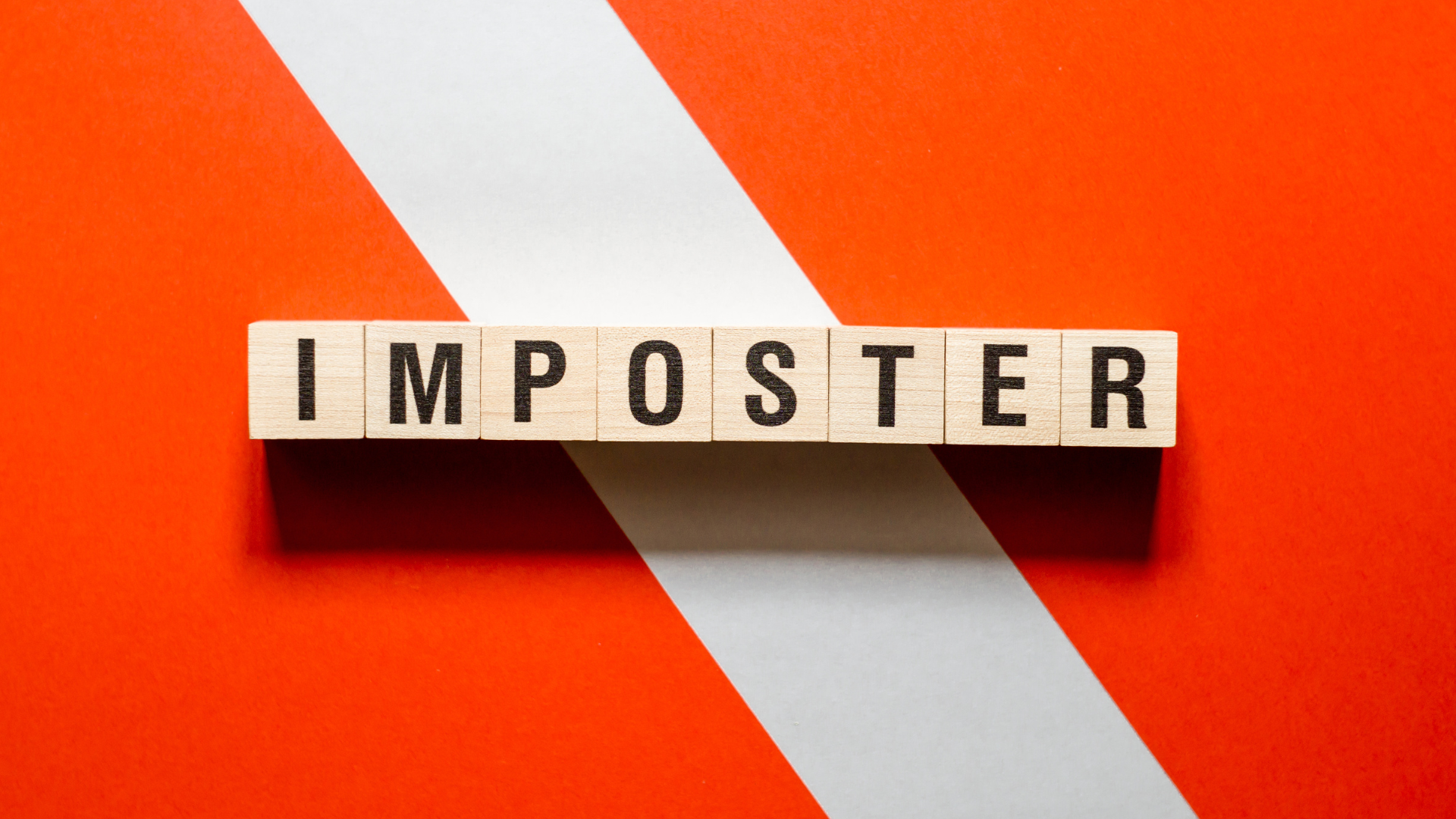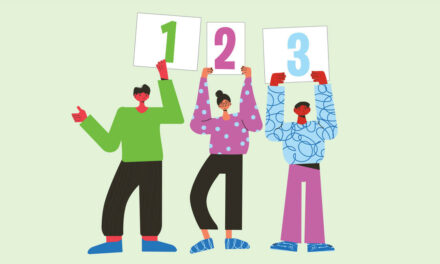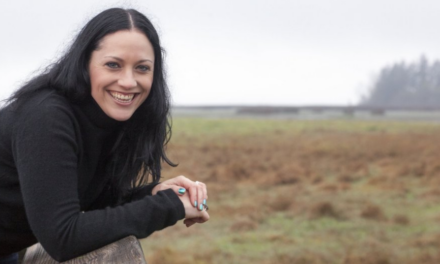Kim-adele Randall, who co-founded International Imposter Syndrome Awareness Day with two friends, wants you to know this: If you feel like an imposter (aka have imposter syndrome) – building a high-subscriber newsletter, a six-figure online course empire, or a successful sponsored podcast — it means you’re doing something right.
“I actually think imposter syndrome is the symptom of being an insecure overachiever,” Kim-adele says. “You only get it when you’ve achieved something.”
You only get imposter syndrome when you've achieved something, says @KimAdele10, co-founder of International #ImposterSyndrome Awareness day. #CreatorEconomy Share on XMerriam-Webster dictionary defines “imposter syndrome” as “a psychological condition that is characterized by persistent doubt concerning one’s abilities or accomplishments accompanied by the fear of being exposed as a fraud despite evidence of one’s ongoing success.”
If any of this sounds familiar, you’re not alone. David Bowie, Serena Williams, Lady Gaga, and Maya Angelou all owned up to experiencing imposter syndrome. But it’s not limited to A-list celebrities and trailblazers. Research shows that 70% of the population will experience imposter syndrome at least once in their lives.
“You can be the biggest, most powerful creator on the planet, and you still feel like you haven’t made it quite yet,” says Joe Pulizzi, founder of The Tilt. “You just have to say: ‘Look, everyone feels that way, in any job, by the way. This is not a content creator thing. When you find success, you’re like, ‘How could this be?’”
We all start somewhere
Ruminating over worries you’re really not good enough – that somebody will think you’ve been faking it all along – can stymie your continued success and happiness and even lead to anxiety and depression. Imposter syndrome often comes with a side of fear of failure, discounting praise, denial of competence, and guilt about success, according to research.
And content creators may set themselves up to experience it because of the way they grow their business. “Imposter syndrome is something that hits everybody pretty early on, particularly when building a business online,” says author and podcaster Chris Ducker, who offers business incubator and coaching programs. In the beginning, content creators follow other creators who inspire them or from whom they can learn – “you feel like they are your kind of people. You just want to get to know them better.”
But, witnessing the success of others can let feelings of imposter syndrome creep in. “I think it’s just very, very wrong for people to paint themselves with similar brushes of individuals that have been in the industry for so long,” Chris says. “We shouldn’t be looking to compare maybe our seventh or eighth step on our journey with somebody else’s 70th or 80th. They’ve been around a lot longer. They’ve seen a lot more. They’ve learned a lot more lessons, had a whole bunch of wins.”
Don't compare your content creator journey to someone who's been doing it a lot longer. They've learned a lot more lessons, says @ChrisDucker. #ContentEntrepreneur #ImposterSyndrome Share on XErick Byrd, associate professor in the Department of Marketing, Entrepreneurship, Hospitality, and Tourism at the University of North Carolina, Greensboro, is involved in its new esports program. He reminds creators that everybody has to start somewhere.
“It’s too easy to get caught up in that imposter syndrome,” says Erick, who has advised small business owners for years. “But realistically, nobody has all the answers. And so, it takes time. Even the best content creators, even the best chefs or restaurateurs, had to start out at a beginning point. Just remember that.”
How to quash imposter syndrome
Kim-adele, a business consultant, speaker, author, and podcaster, began her career as a hairdresser. Though she moved into a successful career in finance and consulting, she always had a lingering feeling she didn’t deserve the accolades because of how she started out.
She realized she had grappled with the effects of imposter syndrome for decades when she faced a potentially life-threatening illness. Kim-adele wrote a letter to her young daughter in case she didn’t survive.
“It was in that moment that it suddenly hit me that the voice we talked to ourselves becomes the voice we teach our children to talk to themselves,” Kim-adele says. “And it broke my heart. I found, if I survived, I would find out why I’ve been so cruel to myself and how I could change the words that I used, so that wasn’t what I left for my little girl.”
3 questions to reframe thoughts
Kim-adele and her co-founders launched International Imposter Syndrome Awareness Day in 2021. It is celebrated on April 13 each year. She also helps lead a private Facebook group (2K), where the community shares tips and experiences about how to deal with imposter syndrome.
Confront your inner demons as you build your content business. The moment you feel like you’re no good at a task, Kim-adele says to ask these three questions. In this example, let’s say the activity is a request to speak at an event, and you don’t think your public speaking is good enough to do it.
1. What evidence is there that I can’t do this?
Go back to the library in your brain and pull up a few times when you messed up. Nobody can do everything perfectly. It’s important to acknowledge that.
2. Is there any evidence that I might be able to do this?
Now, it’s time to reframe that thinking. Pull from your brain all the evidence that you are a good public speaker – and that you do have something to offer.
As content creator Jam Gamble tells The Tilt: If somebody asks you to speak at their event, they already decided you’re the right person for the job, and you have the skills to engage with their audience.
“Find all the times you got it right,” Kim-adele says. “Reframe that thinking to go, ‘I can get it wrong, but I can get it right.’”
3. If I were talking to the most important person in my life, what advice would I give them?
Treat yourself like you would the people you love, Kim-adele says. “Our advice to others is always, ‘You can do this. Try hard. You’ve got this. You’re great at what you do,’”
You need to start saying that to yourself more often, she says.
Reframe #ImposterSyndrome thinking. Ask yourself: If I was talking to the most important person in my life facing this challenge, what advice would I give them?#ContentEntrepreneur Share on X3 ways to react to imposter thinking
And to squash imposter syndrome even before it can take over your mindset, Kim-adele says awareness is key. Here’s what to do.
1. Talk about it
“The reason I share it with people is to say, ‘You’re not alone in this,” she says. “Everybody else goes through this as well. Step one to recovery is to talk about it.”
2. Get your thrive hive
Find the people who will be real with you in an honest and kind way. Kim-adele has somebody who will give her a kick in the seat of the pants when she needs it. And she has somebody else who will wrap her up in a hug when she’s not quite ready for tough love.
“I know I need all of those (people),” she says.
3. Embrace the word ‘yet’
Nobody is perfect at everything, and we all start somewhere. “The most powerful word in the English language that I’ve found is the word, ‘yet,’” Kim-adele says.
Don’t say, “I can’t do this.” Instead, say, “I can’t do this yet,” or “I’m not good at this yet.” It means you want to find a way to do it, Kim-adele explains.
Join The Tilt on Discord to gather with a community of creators who have been there and may still be there. Together, you can reframe your imposter syndrome thinking.
About the author
Sarah Lindenfeld Hall is a longtime journalist, freelance writer, and founding editor of two popular parenting websites in North Carolina. She frequently writes about parenting, aging, education, business management, and interesting people doing remarkable things.











